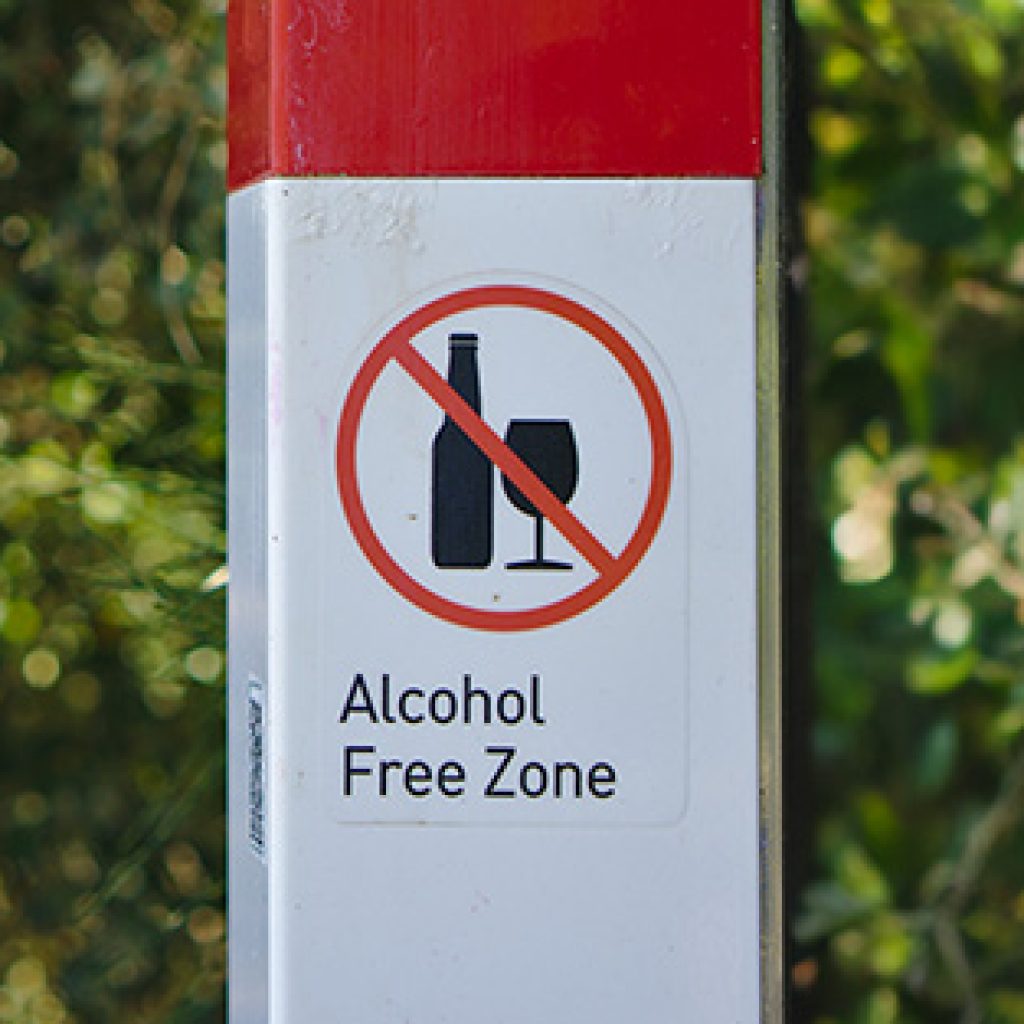6 Awareness Events in April You Need to Know About
April is a full month of awareness events. These events include Alcohol Awareness Month, Child Abuse Prevention Month, Counseling Awareness Month, Minority Health Month, Sexual Assault Awareness Month, and Stress Awareness Month. Each one of these awareness events are important for behavioral health providers to know about.
Let’s begin with why do we have so many awareness events? Awareness events help to shed a light on important topics. Through awareness, perceptions can shift, and culture can change through consciousness raising. These events serve as an opportunity to show support for topics, increase knowledge about work being done within the community, and aid with advocacy efforts. In this article, you’ll find an overview of each of these events, in addition, throughout the month we’ll explore some of these events more in depth.
#1: Alcohol Awareness Month
Alcohol Awareness Month is sponsored by the National Council for Alcoholism and Drug Dependence (NCADD). The purpose of this event is to raise awareness and understanding of the causes and treatment of the Nation’s #1 public health problem: alcoholism.
An important part of Alcohol Awareness Month is to educate people about treatment and prevention of alcoholism, especially among youth. NCADD emphasizes the important role parents play in understanding how alcohol can impact their lives. Some key stats offered by NCADD include:
Over the last year 22.9 million people have experienced drug or alcohol use disorder.
70% of young people who abuse substances before the age of 13 will develop an addiction.
70,000 Americans die annually from a drug or alcohol overdose.
The NCADD encourages three ways to observe National Alcohol Awareness Month:
- Participate in Alcohol-Free-Weekend this weekend
NCADD encouraged everyone to spend 72 hours without alcohol. Over the course of the weekend monitor any symptoms of discomfort or cravings. - Start conversations
This month commit to speaking with any friends and family that you’ve noticed are heavily drinking. If you are a parent with a child 9 years of age or older, start a conversation with them about alcohol misuse. Help to teach kids/teens that stress, anger, loneliness, and peer pressure are a part of life, and help kids to develop coping skills for life. - Throw a ‘Clean’ Party
Throw an alcohol free (clean) party for adults. Invite over friends, neighbors, and/or family to gather without alcohol. Consider serving mocktails, club soda, or kombucha. You may notice how often alcohol is a part of parties, and discuss what it’s like to gather without alcohol.
Alcohol Awareness Month Resources
- NCADD has several helpful resources on its website.
- The Substance Abuse and Mental Health Services Administration’s (SAMHSA) underage drinking prevention campaign, ‘Talk. They Hear You,’ has talking points and tools for coalitions, parents and caregivers so they can start talking to their children early—as early as 9 years old—about the dangers of alcohol.
- Raise awareness about alcohol-related harms and the importance of alcohol policy safeguards, theNorthwest PTTC launched their Alcohol Awareness Toolkit: #ProofIsInTheNumbers so prevention practitioners can rally around the weekly themes to observe April as National Alcohol Awareness month.
#2: Child Abuse Prevention Month
National Child Abuse Prevention Month (CAP Month) raises awareness about the importance of strengthening families to prevent child abuse and neglect. Community collaboration, prevention services, and family support helps to protect children, and produce thriving families. CAP Month was first designated in 1983 by Prevent Child Abuse America (PCA America). PCA America has grown to a nationwide network of state chapters. Child welfare organizations often utilize this time to raise awareness and inspire collective action to eliminate child abuse and neglect.
To kick off this month long awareness event, April 1 has been designated as ‘Wear Blue Day’. By wearing blue today, you are showing your support for the essential work needed in your community and across the country to ensure a better, safer future for all children.
The 2020 Nevada Children’s Report Card ranked Nevada with an overall grade of a D. When it comes to health (access to care, prenatal/infant health, immunizations, childhood obesity, dental health, mental health, and sexual health), Nevada was ranked with an overall health rank of a D. When it comes to safety (child maltreatment, youth homelessness, juvenile violence, child deaths & injuries, and substance abuse), Nevada ranked with an overall safety ranking of a C+. When it comes to education (school readiness, student achievement, high school completion, and funding), Nevada ranked with an overall education grade of an F. When it comes to economic well-being (employment, housing, poverty, income), Nevada ranked in economic well-being as a D+. It is clear, Nevada has a long ways to go on different ways to support our youth.
Child Abuse Prevention Resources
The 2021/2022 Prevention Resource Guide highlights important actions that we can take as an individual, family member, within our organization, community or society at large to reduce the root cause of child abuse and neglect. Innovative projects are shared, along with protective factors to help children, youth, families, and communities to build resiliency.
Be sure to check out the Protective Factors Conversation Guide located within the 2021/2022 Prevention Resource Guide. This is an important tool for service providers. It has guides to help providers have personalized conversations about protective factors and includes great worksheets for caregivers.
Review the Child Maltreatment Data book to find out the latest statistics on child abuse and neglect in the United States. In 2020, 3,145,000 million children received either an investigation or an alternative response (i.e., foster care). There were 618,000 victims, and 1,750 fatalities in 2020.
#3: Counseling Awareness Month
The American Counseling Association (ACA) designates April as Counseling Awareness Month (CAM). The goal of this awareness event is to advocate for the profession and celebrate the exceptional efforts of counselors. Over the last two years, counselors have supported people living through a pandemic, national strife, and have had to learn new treatment delivery systems. Counselors are reporting similar stressors and anxiety as their patients. This year’s theme is – The Future is self-care, advocacy, and inclusion #BurnBrightNotOut.
Counseling Awareness Month Resources
Find webinars, and a tool kit at the American Counseling Association (ACA) website. Mark your calendars to wear Teal on April 8! Teal Day shows support, recognition and appreciation for counselors.
#4: Minority Health Month
April also brings awareness to minority health. National Minority Health Month (NMHM), is an important time to build awareness about the unequal burden of premature death and illness in people from racial and ethnic minority groups. This month is an important time to encourage action through health education, early detection and control of disease complications.
National Minority Health Month originated in 1915 when Booker T. Washington established National Negro Health Week. In 2002, Congress supported a concurrent resolution (H. Con. Res. 388) that “a National Minority Health and Health Disparities Month should be established to promote educational efforts on the health problems currently facing minorities and other health disparity populations.” The resolution encouraged “all health organizations and Americans to conduct appropriate programs and activities to promote healthfulness in minority and other health disparity communities.” Learn more about NMHM.
National Minority Health Month Resources
#5: Sexual Assault Awareness Month
Sexual Assault Awareness Month (SAAM) raises awareness about the prevalence of sexual assault and aims to educate communities and individuals on how to prevent sexual violence. It is observed every April by the National Sexual Violence Resource Center (NSVRC). This year’s theme is to: Build Safe Online Spaces Together.
NSVRC wants to raise awareness that sexual harassment, assault, and abuse can happen anywhere, including online spaces. They describe, how arassment, cyberbullying, sexual abuse and exploitation are unfortunately typical and unavoidable behaviors online. Through practicing digital consent, promoting value, respect, inclusion and safety on online platforms, and intervening when we see harmful content and behaviors makes this year’s theme, Building Safe Online Spaces Together possible. Learn more: www.nsvrc.org/saam.
National Resources
- National Sexual Violence Resource Center
- RAINN(includes the National Sexual Assault Hotline. 800-656-HOPE)
- End Rape on Campus
- It’s On Us
- No More
Nevada Resources
- Crisis Support Services of Nevada
- Nevada Coalition to End Domestic and Sexual Violence
- Safe Embrace
- Nevada CARES[Consent. Awareness. Relationships. Education for Students] based at the University of Nevada, Reno’s (UNR) Center for the Application of Substance Abuse Technologies (CASAT)
#6: Stress Awareness Month
National Stress Awareness Month is an important reminder that stress effects health and well-being. The annual campaign began in 1992. Over the course of the month, public forums, discussion groups, and other informative community events are organized to highlight the health impacts of stress.
CASAT OnDemand Resources for Stress Management
- CASAT Conversations Podcast Season 2: Exploring the Importance of Resilience in Healthcare
- Stress First Aid to Combat Burnout and Compassion Fatigue
- Blog Post: How Much Do You Know About Toxic Stress?
- Make Sleep a Priority for Mental Health
- Laughter Therapy And Happiness Learning Lab
- Stress Management and Wellness: SELF-PACED ONLINE COURSE
Look for more information this month on several of these events. Follow us on social media (Facebook, Twitter, Instagram, LinkedIn) and subscribe to our blog.
Your Turn: Which of the awareness events this month are most meaningful to you? What will you do to raise awareness about this topic?
Additional resources may be found on the CASAT OnDemand Resources & Downloads page.
This article was developed by Heather Haslem, M.S. Feel free to use, link to, or distribute this information. A link to our site and attribution would be much appreciated.
Blog Post Tags:
Related Blog Posts
Related Blog Posts
Related Learning Labs
Related Resources
.
- Buscar Tratamiento de Calidad para Trastornos de uso de Sustancia (Finding Quality Treatment for Substance Use Disorders Spanish Version)
- Finding Quality Treatment for Substance Use Disorders
- Focus On Prevention: Strategies and Programs to Prevent Substance Use
- Monthly Variation in Substance Use Initiation Among Full-Time College Students
- The National Survey on Drug Use and Health (NSDUH) Report: Monthly Variation in Substance Use Initiation Among Adolescents








